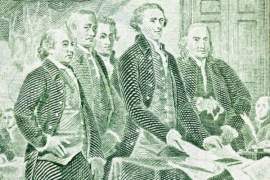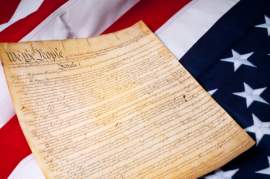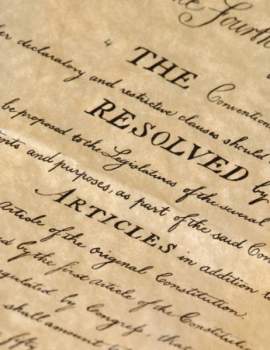
Standard Oil Co. of New Jersey v. United States

Popular In Constitution
Purpose Of Lifetime Appointment And Pros And Cons Enumerated Powers Bicameral Legislature Background Article 3 Of The Constitution We The People 1st Amendment Who Wrote The Constitution Judicial Review Equal Protection Clause Three Fifths Compromise 10th Amendment 5th Amendment
The Standard Oil Co. of New Jersey v. United States of 1911 was a landmark Supreme Court case in which the Court found the Standard Oil Company guilty of operating a monopoly that eliminated the ability of other petroleum companies to compete for business. The Court ordered the dissolution of the Standard Oil Company on the grounds of the Commerce Clause. It required that the company be broken down into several companies that would compete for business.
The Standard Oil Company allegedly engaged in a number of practices that were considered to be both anti-competitive and illegitimate. The company was accused of making threats to all those distributors that did not purchase their product, as well as severely underpricing their products in order to drive all other companies out of business. Although Standard Oil's practice of buying out other companies was not technically illegal, it violated the Sherman Anti-Trust Act by eliminating the prospect of competition.
The New Jersey company initially found success by utilizing alternative types of technology in oil refinery, but eventually expanded their company by buying out the competition. By the close of the 1800s, Standard Oil controlled the majority of the petroleum business.
The Court's decision in this landmark Supreme
Court Case was based on the Commerce Clause which gives Congress the power to
regulate trade among the states. This decision prompted the Supreme Court to
decide that the term "restraint of trade" had come to mean the
forming of monopolies and their consequences. These consequences, as outlined
by the Court's decision, included higher prices, reduced output, and reduced
quality. The Supreme Court ruled that a monopoly would be in violation of the
Sherman Anti-Trust Act only if it resulted in one of the three listed
consequences.
This landmark Supreme Court Case also added an important restriction to the Sherman Anti-Trust Act. Based on the opinion of one of the dissenters, the Sherman Anti-Trust Act would only be applicable if the actions of the company had been unreasonable. In this case, it was held that the actions of the Standard Oil Company of New Jersey were in fact unreasonable. This related to the allegations of threats that the company supposedly made to distributors and suppliers who considered doing business with the company's competitors.
The Standard Oil Company of New Jersey was divided into smaller companies that were forced to compete for business. This was all considered constitutional under the Constitution's Commerce Clause.
NEXT: Understanding Supreme Court Dockets





















